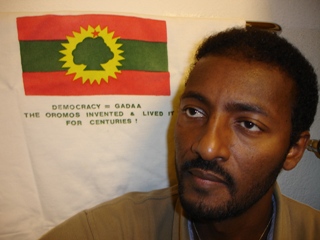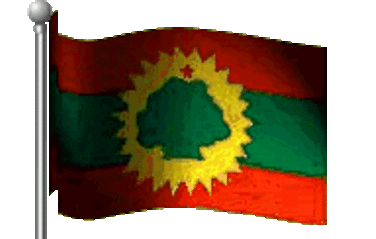UN reports worsening humanitarian conditions in Ethiopia’s Somali region

The humanitarian situation in Ethiopia’s Somali regional state – one of the country’s poorest areas and home to some 4.5 million people – has deteriorated substantially over the past several months due to ongoing security operations, according to a United Nations assessment team that recently visited the region.
Fighting between the Ethiopian National Defence Forces and the Ogaden National Liberation Front (ONLF) has led to the doubling of food prices, inadequate access to clean drinking water and shortages of drugs and other medical supplies, according to a press release from the UN Office for the Coordination of Humanitarian Affairs (OCHA).
The team observed that household food reserves are nearly exhausted among the communities it visited and food aid operations in the areas affected by fighting have been “seriously delayed.” In addition, Government restrictions on commercial and livestock trade have aggravated an already fragile food security and livelihood situation.
“Given the clear suffering of the families in these zones, and the probable deterioration in their lot, I hope that the Government of Ethiopia and the ONLF will do everything in their power to ensure immediate, safe and full access for humanitarian organizations into the region,” UN Emergency Relief Coordinator John Holmes said.
In its report, the team urged that emergency food aid be provided immediately for some 600,000 people for three months. It also called for the creation of conditions to allow a substantial increase in commercial food deliveries throughout the region as well as increased livestock trade. Drugs for health facilities and support to establish mobile health teams were also needed.
The team recommended that reports of a “worrying human rights and protection situation for the civilian population” be investigated and action taken to protect civilians, including women and children.
The report has been shared with the Ethiopian authorities and the UN stands ready to assist the Government in increasing the delivery of humanitarian assistance and in following up on the team’s recommendations.
The inter-agency team included staff from OCHA, the UN Children’s Fund (UNICEF), the Food and Agriculture Organization (FAO), World Food Programme (WFP), World Health Organization (WHO), the UN Department of Safety and Security and the Office of the United Nations High Commissioner for Human Rights (OHCHR).
Fighting between the Ethiopian National Defence Forces and the Ogaden National Liberation Front (ONLF) has led to the doubling of food prices, inadequate access to clean drinking water and shortages of drugs and other medical supplies, according to a press release from the UN Office for the Coordination of Humanitarian Affairs (OCHA).
The team observed that household food reserves are nearly exhausted among the communities it visited and food aid operations in the areas affected by fighting have been “seriously delayed.” In addition, Government restrictions on commercial and livestock trade have aggravated an already fragile food security and livelihood situation.
“Given the clear suffering of the families in these zones, and the probable deterioration in their lot, I hope that the Government of Ethiopia and the ONLF will do everything in their power to ensure immediate, safe and full access for humanitarian organizations into the region,” UN Emergency Relief Coordinator John Holmes said.
In its report, the team urged that emergency food aid be provided immediately for some 600,000 people for three months. It also called for the creation of conditions to allow a substantial increase in commercial food deliveries throughout the region as well as increased livestock trade. Drugs for health facilities and support to establish mobile health teams were also needed.
The team recommended that reports of a “worrying human rights and protection situation for the civilian population” be investigated and action taken to protect civilians, including women and children.
The report has been shared with the Ethiopian authorities and the UN stands ready to assist the Government in increasing the delivery of humanitarian assistance and in following up on the team’s recommendations.
The inter-agency team included staff from OCHA, the UN Children’s Fund (UNICEF), the Food and Agriculture Organization (FAO), World Food Programme (WFP), World Health Organization (WHO), the UN Department of Safety and Security and the Office of the United Nations High Commissioner for Human Rights (OHCHR).



0 Comments:
Post a Comment
<< Home